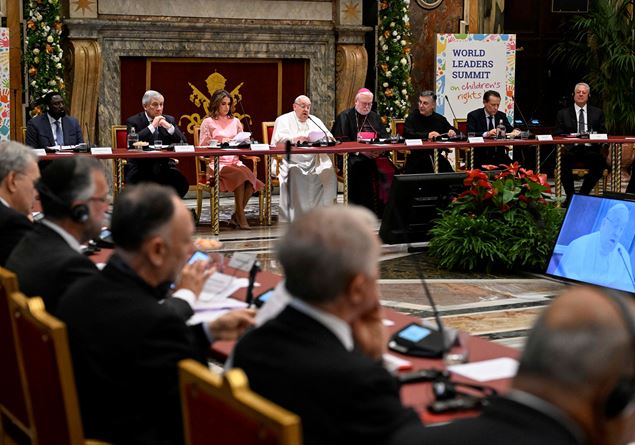
It’s almost the Telethon, an annual campaign to benefit genetic diseases. Sponsor, theme, entertainment, TV show… News.
The Telethon takes place on November 29 and 30, 2024 throughout France and on France Télévisions channels. Each year, more than 30 hours of live television broadcasts help collect donations to benefit genetic diseases. Since its first edition in 1987, the Telethon has been a charitable event which provides the means to the AFM-Téléthon association (the French Association against Myopathies) to continue its fight against genetic diseases. “Genetic diseases were destroying the lives of our children and our families. To fight them, we had nothing: no means, no treatments. There was no question of giving in and we created the Telethon. We wanted to give life to research that did not exist. We wanted to revolutionize medicine. Year after year, thanks to your loyal support, we succeeded. explains Laurence Tiennot-Herment, president of the AFM-Téléthon.
Who is the sponsor of the Telethon?
After Vianney last year, Mika will be the sponsor of the 38th edition of the Telethon. The following personalities have succeeded each other as godfathers and godmothers of the Telethon: Kev Adams in 2022, Soprano in 2021, Matt Pokora in 2020, Jean-Paul Rouve in 2019, but also earlier, Zazie, Garou, Patrick Bruel, Franck Dubosc , Gad Elmaleh, Anne Roumanoff, Daniel Auteuil, Gérard Jugnot, Thierry Lhermitte, Yannick Noah, Pierre Perret, Alain Delon…
What diseases are supported by the Telethon?
cli tests The research financed by Telethon donations concerns rare diseases of the muscles, vision, blood, skin and brain. The best known is myopathy but there is also:
- spinal muscular atrophy,
- congenital muscular dystrophies,
- muscular glycogenosis,
- Duchenne muscular dystrophy,
- Charcot disease,
- Steinert’s disease,
- inflammatory myopathies,
- autoimmune myasthenia gravis…
How is the Telethon broadcast going?
Each year, the Téléthon broadcast brings together the sponsor of the event, artists, hosts from France Télévisions, researchers and doctors who take stock of research advances, but also families of patients who testify to their daily. It is broadcast on France Télévisions from Friday evening to Saturday night, live. The idea came from the United States where a charity television marathon had existed since 1966. In France, two dads whose sons suffer from Duchenne muscular dystrophy had the idea of adapting this American concept and managed to convince France 2 ( Antenne 2 at the time) in 1987, the year in which the first French Telethon was broadcast on television.
At the same time, there is also the Connected Telethon: also, France Télévisions cameras are installed in 4 cities in France: Dijon (21), Lorient (56), Guebwiller (68) and Cassis (13). There are the traditional culinary or sporting challenges, and a new challenge: in a lake, a river, at sea, or in their bathtub, everyone is invited to take part in the big Telethon bath.
To make a donation, there are three options:
- By telephone at 3637 (free service + price of a call) from Friday December 6 at 8 a.m.
- On the internet on the Telethon website
- By mail: AFM Téléthon – BP 83637-16954 Angoulême Cedex 9.
Please note that you can deduct from your taxes 66% of the amount of your donation (up to 20% of taxable income). For example, if you donate 100 euros, you will only pay 34 euros after the 66% tax reduction.
What is the Telethon logo?
Key dates in the history of the Telethon
► 1986: inspired by an American concept invented in 1966 by the actor Jerry Lewis, the Telethon was created in France by Bernard Barataud (President of the AFM) and Pierre Birambeau (development director), two fathers whose sons suffer from myopathy.
► December 4, 1987the first Telethon is broadcast on Antenne 2 live from the Radio France studios. For 28 hours, Michel Drucker, Claude Sérillon, Gérard Holtz and Jacques Chancel take turns on the air with godfather Jerry Lewis. The collection of donations reached more than 175 million francs.
► Since this first editionthe Telethon allows the associative world, sports federations and businesses to mobilize by organizing cultural and sporting events in the towns and villages of France.







